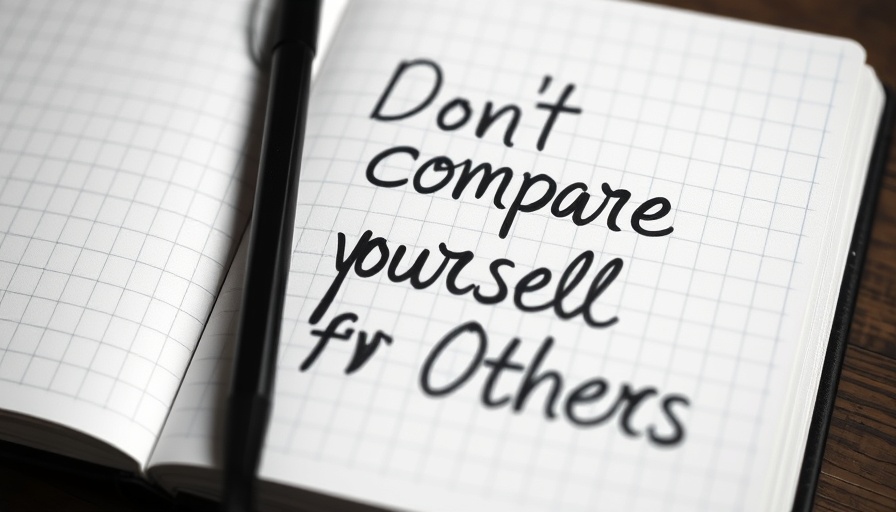
Why Comparison Hurts Our Mental Health
In our hyper-connected world, the tendency to compare ourselves with others has grown stronger than ever. Social media constantly presents curated versions of life that can lead to toxic self-evaluation and result in heightened anxiety and depression. Understanding the psychological effects of comparison is crucial in mitigating its negative impact on mental health.
Common Triggers for Comparison
Several factors drive individuals to engage in comparison. These triggers can include workplace achievements, social media exposure, familial expectations, and cultural narratives that pressure individuals to succeed. Such comparisons not only foster feelings of inadequacy but can also exacerbate existing psychological issues such as generalized anxiety disorder and social anxiety.
Tackling the Comparison Mentality
Breaking free from the cycle of comparison is not easy, but it's essential for mental well-being. Practical strategies, such as cognitive behavioral therapy (CBT) techniques, can aid in reframing one's mindset and reducing negative self-talk. Mindfulness practices like meditation and yoga for anxiety can ground individuals in the present, helping to alleviate feelings of discontent and enabling a more balanced view of one’s self-worth.
Building Self-Esteem: The Foundation
One of the most effective ways to combat comparison is by fostering self-esteem. This involves recognizing personal achievements, irrespective of how they stack against others. Self-care practices, such as exercise and nutrition for mental health, can fundamentally enhance emotional resilience and foster a healthier self-image.
Creating a Healthy Digital Space
The digital landscape can fuel unhealthy comparison. Limitations on social media use or engaging in a digital detox can help. Replacing comparison-inducing content with uplifting and empowering material can lead to a significant improvement in mental state and self-acceptance.
Engaging with Support Networks
Support groups and counseling can play a vital role in mitigating feelings of loneliness and inadequacy that often accompany unhealthy comparisons. Family therapy or peer support groups provide environments where individuals can share their experiences and coping strategies, further reinforcing the notion that everyone has their battles.
Recognizing the Impact of Cultural Factors
Cultural narratives often dictate our perceptions of success and happiness. Recognizing and challenging these norms can help individuals deconstruct harmful comparisons based on social status, appearance, or achievement. Understanding local versus global perspectives can also open up insights into how these pressures differ across various contexts.
Conclusion: Embrace Your Journey
Awareness is the first step in overcoming the detrimental habit of comparison. By focusing on self-growth, surrounding yourself with supportive communities, and practicing mindfulness, individuals can build a more resilient mental state. To improve your overall well-being, engage in practices that resonate with you, and remember, your journey is uniquely yours—embrace it.
 Add Row
Add Row  Add
Add 




Write A Comment